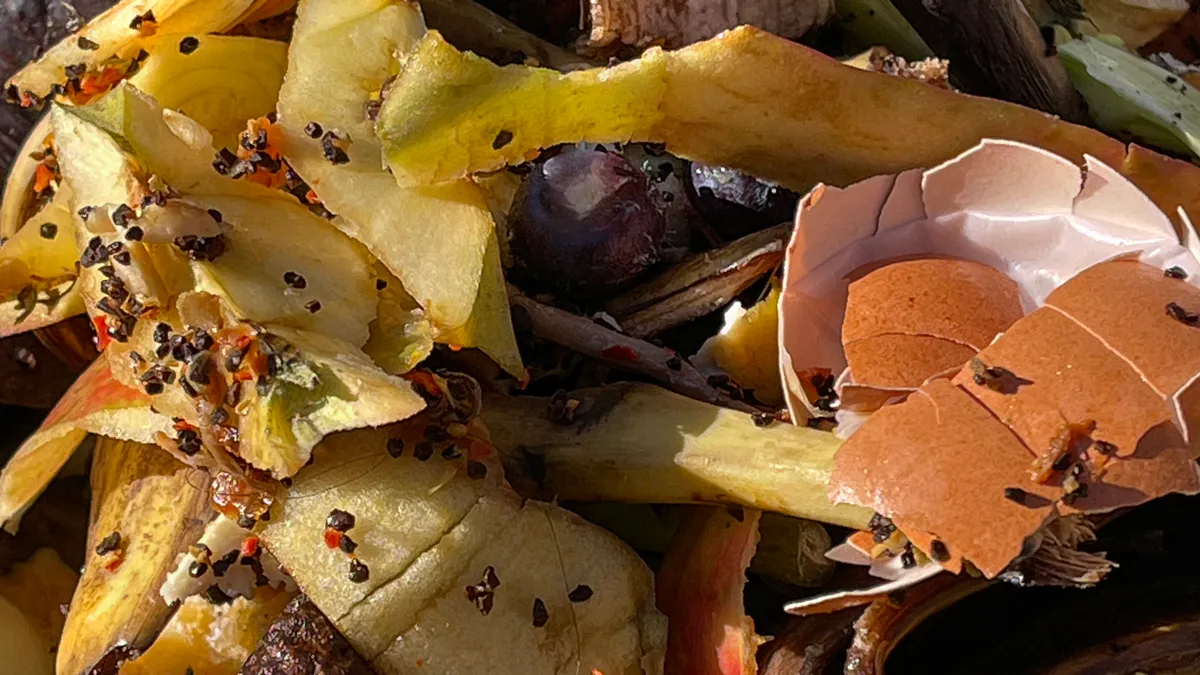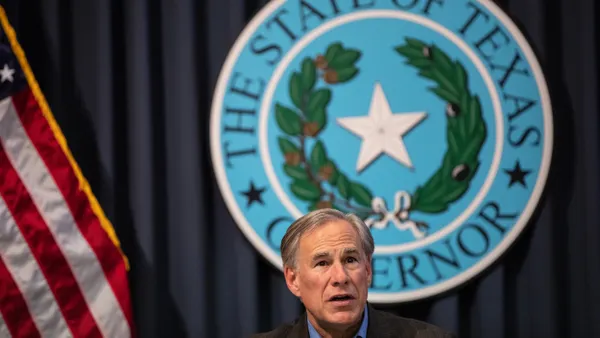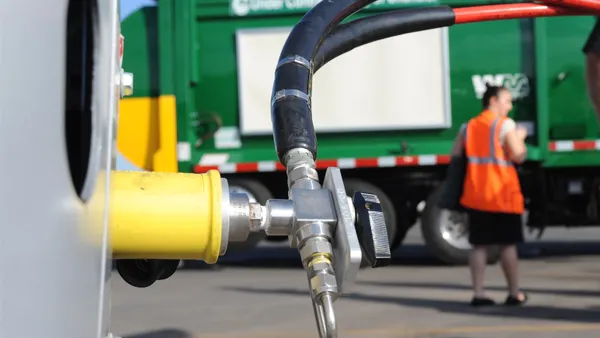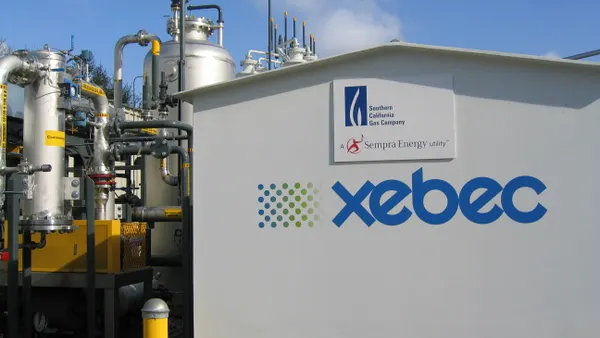UPDATE: Dec. 13, 2024: Gov. Kathy Hochul signed this bill on Dec. 12, expanding New York state’s organics diversion mandate for certain large generators. The New York League of Conservation Voters praised the move in a statement, saying the initial program “has proven to be a great success.”
Dive Brief:
- May 15: Both chambers of the New York legislature recently passed a bill that would expand the state’s organics recycling and edible food recovery requirements for large generators. The legislation is pending final steps before it is sent to Gov. Kathy Hochul.
- New York currently requires businesses and institutions that generate an average of two tons of waste food per week to donate the edible food and recycle the remaining scraps. The latter requirement only applies to generators within 25 miles of an organics recycler.
- S5331/A5906 would shift that threshold to one ton per week effective January 2026, and half a ton per week effective January 2028. The bill also removes the distance exemption for all generators. New York City is not covered by the current or proposed law.
Dive Insight:
Expanding the NYS Food Donation and Food Scraps Recycling law, which passed in 2019 and took effect in 2022, has been a priority of environmental regulators and advocates for multiple years. State Sen. Peter Harckham, who is pushing another bill to create an extended producer responsibility program for packaging, is a primary sponsor.
The move is part of broader efforts to reduce methane emissions from landfills. According to a 2022 report that was part of a state-led greenhouse gas emissions scoping plan, food scraps account for an estimated 18% of the MSW stream in New York. It also noted that “the relatively low cost of landfilling (particularly in Western New York) makes recycling less attractive to both the private and municipal sectors,” and said developing new infrastructure comes with upfront costs.
At the time, the state’s Climate Justice Working Group, which included representatives of environmental groups and state agencies, took the position that “ending the disposal of food scraps and yard trimmings at landfills and combustors is probably the single most important action the State can take to cut emissions from this sector.” The law’s benchmark dates and the removal of the distance exemption align with the group’s recommendations.
The state’s Department of Environmental Conservation identified nearly 1,200 businesses and institutions that would be covered by the existing law in 2023, but only 37% met the distance requirement for recycling. A more recently published list added less than 70 businesses to the the group required to recycle. These lists do not include hospitals, K-12 schools, nursing homes or adult care facilities, which are exempt from the law.
The agency reported an estimated 1.6 million pounds of edible food was recovered through this program in the first 10 months of 2022, and it said it has invested millions of dollars worth of grants in that infrastructure, but the scope of the recycling exemption has been viewed as a missed opportunity.
According to Earthjustice, a bill supporter, an estimated 99% of large generators outside New York City would eventually be covered if this legislation becomes law. Other groups, such as the New York League of Conservation of Voters, also support the bill. The National Waste & Recycling Association’s state chapter has not taken an official position.
New York City has its own commercial organics recycling requirements, based on a different set of criteria. The city’s Department of Sanitation has recommended that local lawmakers consider expanding those requirements to match plans for upcoming universal access to residential organics recycling.
At the time of its last report, DEC identified a need for more organics recycling capacity in the state to meet demands of this market. Capacity had expanded notably as a result of the initial law, and future facilities are expected to open in the region. The agency’s most recent list of available options also included out-of-state facilities, which could play a greater role if the 25-mile distance exemption is eliminated.
New York is one of multiple states with some form of organics recycling regulation, and its requirements are similar to many other Northeastern states. Neighboring states, such as New Jersey and Connecticut, also have distance exemptions that have led to lower volumes of organics recycling in those areas. Other state laws, such as one in Washington state, do not set distance exemptions and have lower thresholds for participation. Maine came close to passing its own commercial organics recycling requirement this spring, but the bill was recently carried over to a future session.











